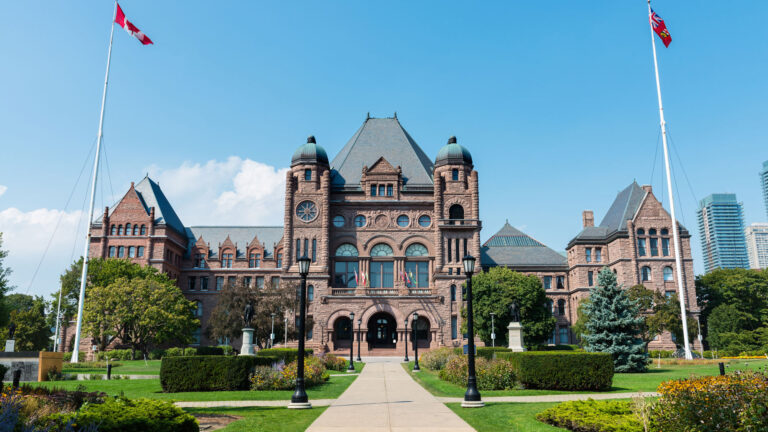IMPORTANT REMINDER – Underused Housing Tax (UHT) transitional compliance relief deadline is coming up soon – October 31, 2023
As a follow-up to our March 2023 news alert on the Underused Housing Tax Act (UHTA), below is a quick summary of the compliance requirements for those residential owners who have not yet filed the necessary annual Underused Housing Tax Return and Election form (UHT – 2900)
The initial deadline to comply with the compliance requirements was set for April 30, 2023; however, CRA has provided a first-year transitional relief and extended the deadline to October 31, 2023.
Special consideration / elections:
In general, if an affected owner (affected owner is defined below) owns a primary place of residence, they would file a UHT return and claim an exemption either under primary residence or qualifying occupancy.
However, if the owner owns more than one residential property whether individually or jointly with their spouse / common law partner, they will not qualify for either of the exemptions on more than one property. To ensure that they can get an exemption on one of the properties, a special rule is in place to allow the owner to designate which property to claim the applicable exemption.
Special rule for individual owner of multiple residential properties is applicable if all the following conditions are met:
- you are an owner of a particular residential property
- you are an individual who is not a citizen or permanent resident of Canada
- either (or both) of the following apply:
- you are an owner of one or more other residential properties
- your spouse or common-law partner is not a citizen or permanent resident of Canada and is an owner of one or more other residential properties
If an election is not filed, none of the multiple properties would be considered exempt and the owners would have to calculate UHT on all the properties.
Determination of value of the property
There are two ways to determine the value of a residential property for the purposes of calculating the 1% tax:
- Taxable value of the property – can be obtained from your most recent property tax assessment statements or,
- Fair Market value
- An affected owner electing to use the fair market value method must get an appraisal of the property. The appraisal report must be prepared by an accredited, professional real estate appraiser operating at arm’s length from the owner.
- Fair market value must be established between the dates of January 1, 2022 and April 30, 2023.
As part of the transitional relief, both the fair-market-value election for a residential property, and the election/joint election to designate a residential property would be accepted by CRA if filed with the return on or before October 31, 2023.
Additional CRA guidance with respect to partnerships
In April 2023, CRA provided additional clarification with respect to properties owned by multiple owners and whether certain situations would constitute a partnership and if so, would each owner be required to file a UHT return.
In general, since a partnership is not considered a “person” for UHTA purposes, unlike an individual or a corporation, each partner in a partnership is required to file a UHT return.
For UHTA purposes, “partnership” is not explicitly defined and it is a question of fact if a relationship is considered a partnership and CRA would rely on individual taxpayer’s self-assessment and review of facts.
CRA provided the following guidance with respect to a few uncertain situations to assist taxpayers when evaluating the new UHT filing requirements:
1. An individual is identified in a provincial land registration system as the sole owner of a real or immovable property located in Canada. The individual rents the property to an arm’s length person and shares the rental income with their spouse. Does that mean the individual and their spouse are in a partnership?
Not necessarily. Some provincial partnership legislation provides that the sharing of gross returns does not, of itself, create a partnership, whether the persons sharing such returns have (or have not) a joint or common right or interest in any property from which (or from the use of which) the returns are derived.
Whether a relationship is a partnership is a question of fact. Canada’s tax system is based on self-assessment, which requires persons to determine the facts themselves.
2. Two common-law partners are identified in a provincial land registration system as joint owners of a real or immovable property located in Canada. They rent the property to an arm’s length person. For Canadian income tax purposes, the two common-law partners each file Form T776, Statement of Real Estate Rentals, indicating that they are in a partnership. Does that mean the two common-law partners are in a partnership for UHT purposes?
The UHTA and the Income Tax Act are independent statutes. However, if two individuals characterize their relationship as a partnership for Canadian income tax purposes, it may be difficult for them to characterize their relationship as something else for UHT purposes.
3. On December 31 of a calendar year, two individuals (both of whom are citizens of Canada) are identified in a provincial land registration system as joint owners of a property (for example, a residential condominium unit) located in Canada. Each individual has determined that they are an owner of the residential property in their capacity as a partner of a partnership. Does each individual have to file a UHT return for the residential property for the calendar year?
Yes. In this situation, each individual is a citizen of Canada who is an owner of the residential property in their capacity as a partner of a partnership. Therefore, each of them is an affected owner for UHT purposes. As an affected owner, each of them has to:
- file a return for the residential property for the calendar year using Form UHT-2900
- pay the UHT for their ownership percentage of the residential property for the calendar year, unless their ownership of the residential property is exempt from the UHT for the calendar year
Welch Comments:
As can be seen in scenario #1 and #2, the CRA guideline is not well defined and there is currently no clear administrative position on such situations. Therefore, it is our recommendation that individual taxpayers for whom the situations above might apply seek professional advice to determine if they have any filing requirement. In our experience it is prudent to review the situation in detail to avoid incurring penalties and interest for non-compliance.
General Background / Summary of the UHTA tax compliance:
Effective January 1, 2022, certain owners of residential property are subject to 1% Underused Housing tax. Canada Revenue Agency (CRA) has published additional guidelines on its website (CRA UHT Guidelines) including examples of what is considered residential property, the definition of excluded owner and situations that are exempt from UHT.
The new tax applies to a person that is an owner of a “residential property” in Canada on December 31 of the relevant year, unless the owner is an “excluded owner” or is eligible to claim one of the available exemptions to the UHT in respect of the particular property.
We have covered the details of the key terms and definition in our previous blog, that can be accessed using this link.
One new definition we would like to bring forward and which was not covered in our previous news alert, is that of the “affected owner”
- An owner that is not defined as excluded owner is considered as an “affected owner”. The affected owner includes, but is not limited to:
- an individual who is not a Canadian citizen or permanent resident
- an individual who is a Canadian citizen or permanent resident and who owns a residential property as a trustee of a trust (other than as a personal representative of a deceased individual and other than as a trustee of a mutual fund trust, real estate investment trust or SIFT trust for Canadian income tax purposes)
- any person – including an individual who is a Canadian citizen or permanent resident – that owns a residential property as a partner of a partnership
- a corporation that is incorporated outside Canada
- a Canadian corporation whose shares are not listed on a Canadian stock exchange designated for Canadian income tax purposes
- a Canadian corporation without share capital
A key point to note is that if the owner is not considered an “excluded owner”, but is an “affected owner” there is an obligation to file an annual UHT return (Form UHT-2900 – Underused Housing Tax Return and Election form), even if the filer ultimately is not liable for the tax i.e. meets exemption from tax liability.
In cases where an affected owner of a residential property shares ownership with one or more co-owners who are also affected owners, each owner must file a separate UHT return for the property, even if each owner qualifies for an exemption.
The legislation does impose severe penalties for non-compliance even if the filing results in no balance due – penalties start at $10,000 if the owner is an entity/corporation and $5,000 for an individual owner.
Next Steps
As stated above, if you have not yet filed the annual UHT return, we recommend that you review your Canadian residential property ownership held in corporations, partnerships, or trusts, including bare trusts, and discuss with your tax advisor if the UHT filing requirements would apply so that you meet the first-year transitional relief deadline of October 31, 2023.












